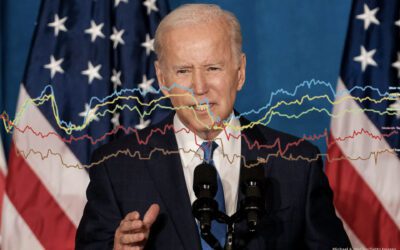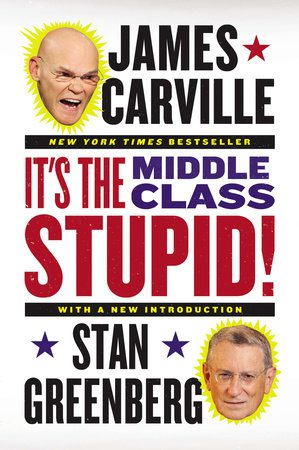In 2012, campaigns and outside groups spent a breath-taking $6 billion at the federal level, more than one billion of it was by Super PACs. A post-election survey conducted November 6-7, 2012 by Greenberg Quinlan Rosner for Democracy Corps and Public Campaign Action Fund shows that voters are fed up with big money politics that they believe undermines democracy. In an otherwise intensely partisan and divided electorate, concerns about money in politics unite voters across parties and demographic groups.[1] Changing money and politics is central to the mandate for change in this election – and unlike the potential bi-partisan deal on the budget – voters are united in their contempt for the corruption of money, clear about how the money is used to influence politicians, and open to major reforms to change it. Indeed, the more information voters hear about the scale of spending, the more open they are to major policy reforms. Among the survey’s findings:
· Voters are deeply concerned that all of this money purchases influence in Congress and drowns out the voices of ordinary voters. When asked who has the most influence on Congressional votes, the views of constituents ranked at the bottom of the list, while 59 percent of voters said “special interest groups and lobbyists” and almost half (46 percent) said campaign contributors.
· As a result, Democrats and Republicans, Obama voters and Romney voters alike, are equally concerned about the level of spending in this year’s presidential campaign, and this survey finds unmitigated bi-partisan disdain for Super PACs.
· Among all 2012 voters, 61 percent give the current level of money in politics an unfavorable rating, including a nearly identical 62 percent of Obama voters and 60 percent of Romney voters.
· Seven in ten voters said there was more advertising in this election compared to past years and more than a quarter characterized it as “unhealthy for our democracy.”
· Two thirds (64 percent) of 2012 voters said that democracy was undermined in this election by big donors and secret money that control which candidates we hear about.
· Accordingly, more than three quarters (78 percent) say there needs to be reasonable limits on campaign spending. This survey finds strong majority support (56 percent) for a plan to replace the current system with one that relies on small contributions and public funding of campaigns.
· Voters give strong support across the board to a series of reforms like closing the revolving door (81%), increased disclosure of outside money (85%), and matching small donations with public funds (67%).
The upshot is that small reforms no longer match the scale of the problem. Voters now want a fundamental overhaul, rather than modest changes, to the way elections are financed, particularly when they are provided information about the $6 billion of campaign spending. Information produces majority support for some of the most sweeping changes with public matching funding.
MoneyPol
In 2012, campaigns and outside groups combined to spend more than 6 billion dollars to elect (or fail to elect) their candidates—a 16 percent increase since 2008. And voters noticed. More than 60 percent of all voters, including nearly identical percentages of Obama and Romney voters, held negative views about the level of spending in this year’s presidential campaign.

More than 70 percent of all voters said there was more advertising in this election compared to past years and more than 61 percent believed it had a negative impact, including the more than a quarter of all groups—Democrats, independents, and Republicans—who characterized it as “unhealthy for our democracy.”

Two-thirds (64 percent) of 2012 voters said that democracy was undermined in this election by big money and fortunately for the Republic, citizens of all partisan stripes are unhappy with what is happening: “Given what I saw in the presidential race during this election, I am fed up with the big donors and secret money that control which candidates we hear about. It undermines democracy.” All voters chose this statement over the alternative, “Money is always going to be spent in campaigns and at least all the candidates were able to get heard and voters got to decide in the end,” by nearly a two-to-one margin.

It is very clear that voters think these donations are buying influence – as voters say that donors and lobbyists have the most influence on members. The constituents rank at the bottom. This is critical: in their own minds, almost least influential are the constituents themselves. And across all groups and parties, voters agree that special interest groups and contributors have the most influence on how members vote. A strong majority, 59 percent, believe that “special interest groups and lobbyists” have the most influence and almost half (46 percent) believe campaign contributors have the most influence on members’ votes. And when asked to rank which had the least influence, it is not surprising that voters believe representatives rely least on their own conscience and on the views of their constituents.
What is striking is how evenly this view cuts across party lines, as displayed in the chart below.

Voters are now reacting strongly against a system in Washington, fueled by money and run by special interests, that they believe limits Congress’s ability to focus on what is best for the country and for their constituents. Indeed, when asked which candidate would do a better job reducing the influence of special interest money in politics, more than a quarter of all voters either refused to answer the question or volunteered that neither Obama nor Romney could be trusted to reduce the influence of money in politics. No party is presumed to be leading reform in this area.
Voters demand big change
A very clear and powerful theme emerged in this survey: voters are hungry for reforms that would increase citizens’ access to and control over their political system and for reforms that would reduce the influence of big campaign contributors and lobbyists who control how policy decisions are made. This is apparent in their support for plans to expand access to voting, limit money in politics, and eliminate lobbyists’ influence over politicians.
More than two-thirds of all voters (67 percent) give a positive response to a plan to make sure all eligible voters can vote and to a plan that would modernize voter registration and make early voting a universal option.
While support for cutting red tape to make voter registration easier falls along predictably partisan lines (83 percent of Obama voters compared to 50 percent of Romney voters) this survey still finds that half of all Romney voters support such liberalization.
And modernizing the process to allow universal early voting is even less controversial—more than half of all Romney voters (55 percent) give a favorable response to such a plan.
Both of these efforts find strong support among a diverse range of key groups including suburban voters, white non-college voters, seniors, and the unmarried women, minority, and youth voters who comprise the Rising American electorate.

But increasing voter access is only part of the equation. According to this survey, voters also believe that citizens will not truly be represented in Washington until campaign spending is limited.
As a result, there is strong support for candidates soliciting small donations from their home districts, supplemented by matching public funds. Two-thirds of all voters would support a plan allowing candidates for Congress the option of having the small donations from people in their home state matched with public funding as long as candidates took no contributions above 100 dollars. Majorities of Democrats, independents, and Republicans support such a plan, including 74 percent of those who voted for a Democratic representative for Congress and 60 percent of those who voted for a Republican member.
More than three-quarters of all voters (78 percent) say we need to put in place reasonable limits on campaign spending.

Specifically, this survey finds strong majority support (56 percent) for a plan to replace the current system of campaign financing to reduce the influence of big money. This support cuts across party lines—61 percent of Obama voters and half of all Romney voters give a positive response to a plan to replace the current system with one that relies on small contributions and public funding of campaigns. And the newly elected or re-elected representatives would be wise to pay attention—60 percent of those who voted for Democratic candidates and 53 percent of those who voted for Republican representatives support such a reform.
When asked what kinds of policies the U.S. should enact in the coming years, the top item—favored by 81 percent of voters—was “clean up lobbyists and prevent government staff from cashing in on their connections…by closing the revolving door between the government and lobbying firms.”

Voters overwhelmingly support a law that would require outside groups to disclose their sources of spending in elections. Among all voters, 85 percent support such a law, and almost two-thirds (65 percent) strongly. This cuts across party lines—86 percent of Obama voters (66 percent strongly) and 83 percent of Romney voters (63 percent strongly) say they would support mandatory disclosure laws for outside groups. And Congress would be wise to listen—87 percent of those who voted for Democratic representatives as well as 83 percent of those who voted for Republican representatives support disclosure laws.
The upshot is that voters now demand a total overhaul to the way elections are financed, a result that increases when voters are made aware that more than 6 billion dollars were spent in 2012 to elect the President and Congress. When asked how we should address money in politics, just 10 percent of voters said we ought to “keep the system the way it is.” A majority, 52 percent, said we must “overhaul the way elections are paid for by replacing large donations with small donations and limited matching public funds, strict enforcement of election laws, and disclosure of outside spending.” This is more than twice the number saying we need just “modest reforms like increased disclosure of outside spending.”

This memo is based on a national survey of 1,000 likely 2012 voters, conducted November 6-7, 2012 by Greenberg Quinlan Rosner for Democracy Corps and Public Campaign Action Fund. Unless otherwise noted, margin of error= +/- 3.1.




